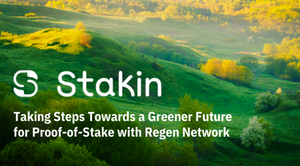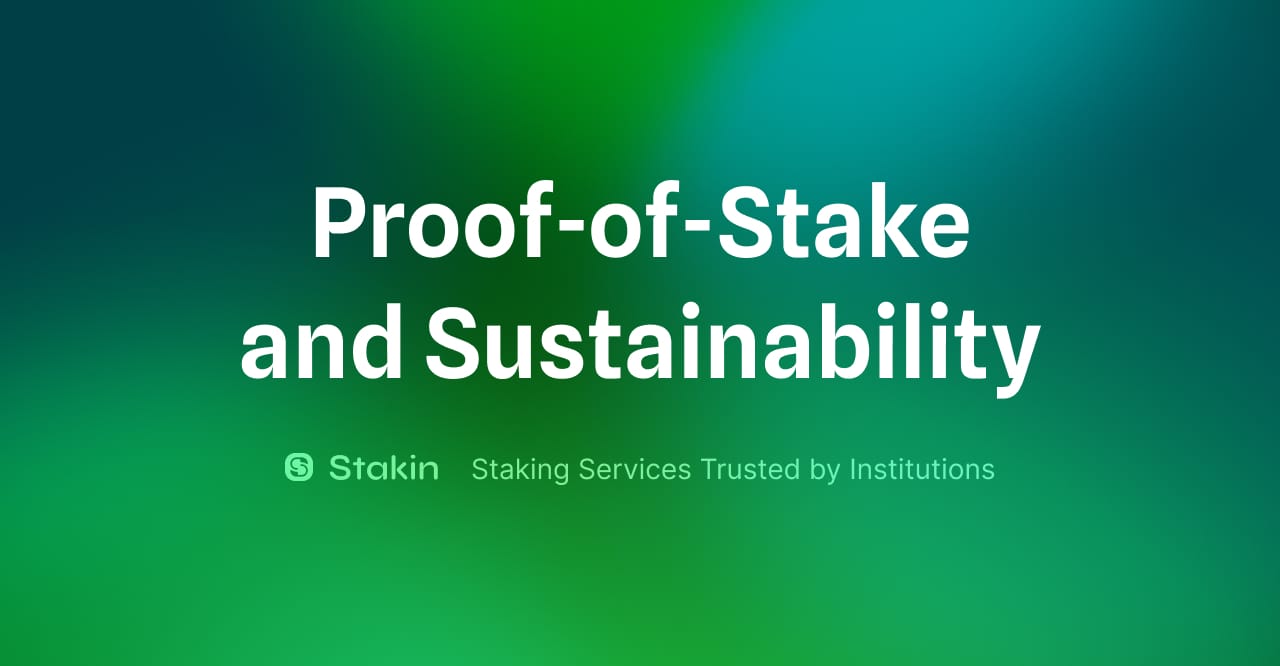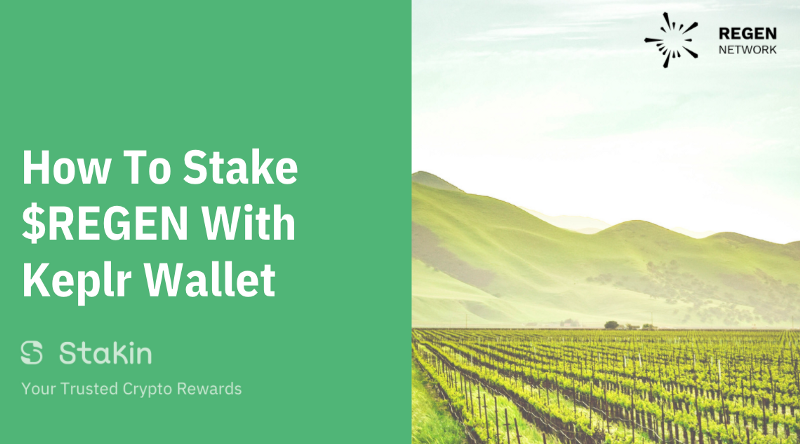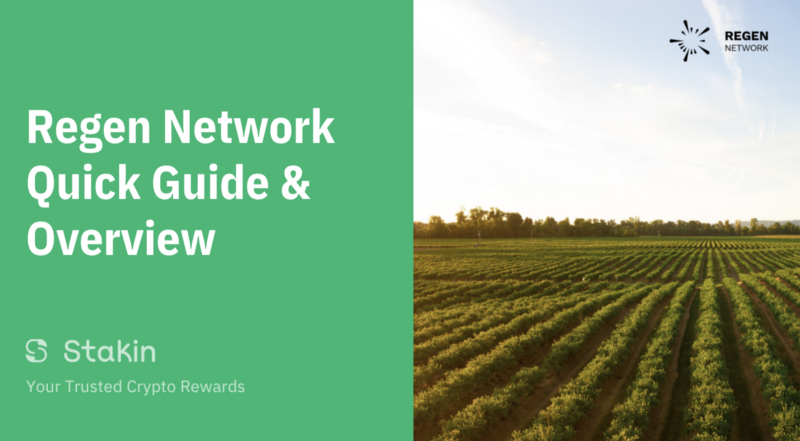With great pleasure, Stakin announces its collaboration with Regen Network to take active steps towards a greener future for the Proof-of-Stake ecosystem. Over the recent months, the sustainability of the blockchain space has been the subject of much debate and concern. At Stakin, the team has always been very conscious of the sustainability of the blockchain ecosystem. These concerns led our team members to support Proof-of-Stake in its early iterations, notably because of the efficiency gains it offers. Proof-of-Stake ecosystems are not as energy-intensive as Proof-of-Work blockchains, as validators do not compete on computing power. Although Stakin is already supporting more sustainable networks, the team wants to go beyond and offset the company's carbon footprint. Thanks to Regen’s team and products, Stakin has estimated its yearly carbon footprint and will offset it to take the first steps toward becoming a carbon-neutral organization.
The Carbon-Neutral Initiative
Thanks to the team at Regen Network, Stakin has estimated (based on in-depth calculations) its yearly carbon footprint. The company measured its carbon footprint by considering business flights, home offices, other team offices, cloud instances, and physical servers that Stakin uses to run its nodes. Based on these factors, the total carbon footprint of Stakin measured in carbon emissions comes down to approximately 61 tons of CO2 for 2021. Many of the cloud instances used by Stakin are already carbon-neutral instances (located in carbon neutral datacenters using renewable energies), and these have been excluded from the calculations.
As each Carbon Credit equals one ton of emissions, the company purchased 61 tons of carbon credits. Through Regen’s Carbon Credits, Stakin is contributing to the development of a portfolio of solutions for carbon sequestration. Aside from carbon sequestration, Regen’s credits emphasize a variety of ecological co-benefits like soil health, water quality, and biodiversity.
Selecting An Offsetting Solution
As a blockchain-based organization, we strive to not just be good at what we do and support the Proof-of-Stake community, but we also feel that we should use blockchain-based solutions whenever we can. Thus, choosing a blockchain-based offsetting project solution seemed the most logical. Aside from this, by utilizing a blockchain-based project for carbon offsetting, all data is recorded for future reference without any interference possible, it's transparent, and the solutions have a direct cause to solution effect, which is measurable.
Apart from that, the Regen Network has been one of the revolutionary projects when it comes to blockchain-based NGOs and is working with many projects around the world. Furthermore, Regen Network offers high-quality Carbon Credit offsetting, based on set standards by the Oxford Principles for Net Zero Carbon Offsetting which sets the following criteria:
- Principle 1: Reduce emissions, use certified offsets, and use best practices for offsetting strategies
- Principle 2: Remove more carbon from the atmosphere than is currently being emitted
- Principle 3: Carbon needs to be locked away indefinitely
- Principle 4: Industry standards to create net-zero aligned carbon offsetting
It is critical to have high-quality carbon credits so that industry-wide adoption and integration do not build low-quality carbon credits. For carbon offset credits to be recognized as high-quality, the confidence level must be based on the credit fulfilling the core premise of substituting GHG emission reductions produced by an entity. Thus, when you utilize a carbon offset credit, the world must be at least as well off as it would have been if you had decreased your carbon footprint.
Thus, with these high-quality Carbon Credits of Regen Network, Stakin can offset its Carbon Emissions starting from January 2021 and work towards a greener blockchain and Proof-of-Stake space.
Giving Back with Carbon Credits
With the purchasing of the Carbon Credits for the offsetting program, Stakin will contribute to the Kasigau Corridor Project in Kenya, Africa. Since 2005, the project has been protecting local wildlife and forests. This project aims to bring the benefits of direct carbon financing to neighboring communities while also addressing alternative livelihoods. Human-wildlife conflict has historically been a problem because local agents rely on flora and fauna for subsistence. In a holistic, long-term approach, the Kasigau Corridor Rukinga project directly addresses such sources of conflict. Another goal is to create a wildlife migration corridor connecting Tsavo East and West National Parks. In the future, other projects can be added.
The Future is Greener!
The Stakin team is thrilled to be taking our first collective steps towards a greener Proof-of-Stake ecosystem. We’d like to thank the Regen Team for their help and look forward to future collaborations.
Tracking Stakin's Carbon Credit offset can be done by visiting the Regen Network Registery, or via Mintscan.
DISCLAIMER: This is not financial advice. Staking, delegation, and cryptocurrencies involve a high degree of risk, and there is always the possibility of loss, including the failure of all staked digital assets. Additionally, delegators are at risk of slashing in case of security or liveness faults on some protocols. We advise you to do your due diligence before choosing a validator.



